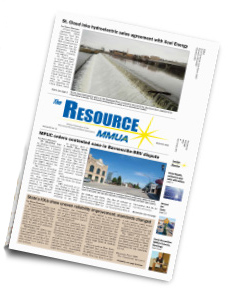
- SINCE 1931
- Cart 0
- Log In
Why Create an Account?
Access members-only information including complete utility directory, salary surveys, discussion forums, legislative updates and more.
Create an Account- Classifieds
- Forum
MMUA Says EPA Proposal Penalizes Minnesota
MMUA Says EPA Proposal Penalizes Minnesota
December 22, 2014
One of the ironies of the EPA’s proposed rule to combat climate change, issued under section 111(d) of the Clean Air Act, is that it penalizes states that have taken steps to reduce carbon dioxide emissions. This includes Minnesota.
Under the bizarre logic of EPA’s methodology, said MMUA, states are assumed to achieve minimal reductions in CO2 emissions from the electric utility industry during the 15-year period from 2005 to 2020.
Minnesota, however, reduced its greenhouse gas emissions by approximately 20 percent from 2005 by 2012, which is the base year in the Proposed Rule. Minnesota energy policy will provide additional greenhouse gas reductions from 2012 to 2020 of 10-15 percent at a minimum. None of these reductions will count toward achieving Minnesota’s assigned goal of a 41 percent decrease in CO2 emissions.
The proposed rule requires states to achieve their entire assigned reduction during the 10-year period from 2020 to 2030. This construct not only flies in the face of reality in early adopter states such as Minnesota, it also ignores the incremental pace of change that occurs in the highly regulated and capital-intensive electric utility industry.
EPA’s assumption that all emission reductions will occur between 2020 and 2030 severely penalizes early adopter states such as Minnesota.
Logic would dictate that states with sizeable amounts of renewable energy on line in 2012 would have a lesser obligation during the 2020-2030 period, said MMUA, since they are already achieving substantial reductions in CO2 emissions. At a minimum, states that are doing a good job at reducing CO2 today should be on an equal footing with those that are not. But under the perverse logic of the EPA methodology, states that are making serious efforts to reduce CO2 emissions prior to 2020 have to make greater reductions between 2020 and 2030 than those that are doing little or nothing today.
MMUA argued that early adopter states must be allowed to choose a phase-in period that encompasses its ongoing greenhouse gas reduction efforts.
Early adopter states should not be penalized for moving ahead with greenhouse gas reductions before a federal mandate. Minnesota achieved a 20 percent reduction in greenhouse gas emissions from 2005-2012.
The only fair way to design the program is to use 2005 as the base year and allow all reductions achieved from that year forward to count toward achieving the goal.
Hometown Connections Helps MMUA Members
 Hometown Connections is an American Public Power Association subsidiary that provides products and services designed to help municipal utilities meet today's new and pressing industry challenges. MMUA is a Hometown Connections Affiliate.
Hometown Connections is an American Public Power Association subsidiary that provides products and services designed to help municipal utilities meet today's new and pressing industry challenges. MMUA is a Hometown Connections Affiliate.
For information on AMI, operations, cyber-security, business strategy, customer care, finance and workforce issues, click on the Hometown Connections logo!
Events
Sponsors

73% of our municipal
electric utilities have
successfully operated
for 100 years or more.


